#compulsory retirement
Explore tagged Tumblr posts
Text
my man playing a match tomorrow when his wife literally gave birth a couple of days ago why are men like this
#get off the pitch and and spend time with your wife and kid 🤣🤣🤣🤣🤣#already missed almost the entirety of last 2 months of the pregnancy for the 6N#comes back home a couple days before baby is due then going out to matches straight afterwards again#enjoy him a lot as a player but man do I not respect some of these life decisions#his poor wife#like if you’re going to be that absent just wait for retirement to have kids it is not that hard#would a week of paternity leave hurt ? would it ?#sale are always flopping and not making the playoffs regardless oMGGGGG#get off the pitch !!#<- irregardless of the state of paternity rights in sports (probably poor)#international players are entitled to compulsory rest periods and they tend to get a fair amount of say in it#don’t see how he couldn’t have gotten this week off knowing his freaking CHILD was due
1 note
·
View note
Text
oh ho ho i have looked up the massachusetts ballot questions and i am so personally excited to vote against the MCAS, the high school standardized test students must pass to graduate. it never impacted my own education because i was in the very last class not to have to take it (late 90s), but i was selected for the pool of beta testers the year before it was universally implemented.
i had a great time actually—get out of class for two days for a test that doesn’t even matter? i enjoyed the process of taking standardized tests (when they didn’t matter) because i had spent most of my pre-high-school days in a homeschool environment without grades, so they reminded of the trivia workbook pages that were rationed out and treated as rewards (in a one room schoolhouse with 5 kids, you take the thrills you could get—public school education was pretty amazing after that).
the most memorable part of it for me was that we got little boxes of raisins as a snack and mine had an inchworm in it. but even then as a dumbass teenager i remember giving feedback that this would be demoralizing and unfair if imposed on everyone. schools chose who would put in the test group, and every one was an A student! what kind of sample was that?
the MCAS wouldn’t become a compulsory requirement for graduation until no child left behind, but it still immediately changed things. my sister was one year behind me, and her experience in the same classes i had taken the year before was so much less inspiring. history and civics teachers who had been painstakingly gathering copies of real articles for decades about historical events had to teach from state approved textbooks. the cross-disciplinary fun projects for multiple subjects were cancelled. older teachers started phoning it in and planned their retirement.
anyway, one of the things i have always felt most grateful for in my life is that i squeaked through my public education before state testing choked it. it was a small rural public school (pretty well funded though, there are a lot of fancy summer homes in property taxing distance), and had very passionate teachers who were having extra creative fun squeezing out the last of their independence, knowing that testing was coming. i was one of the canaries in the coal mine and i will take great pleasure if my vote helps shut it down.
#massachusetts#yes on 2!!#i have no idea what to do with question 1 though#(the one about the executive branch being able to audit the legislature)#the massachusetts legislature is pretty shady but the executive branch isn’t any better#i don’t really think the general population is qualified to answer questions of constitutionality#one of the main arguments against it seems to be that it’ll be expensive to fight out the constitutional ramifications in the courts#but so i’ll probably vote yes because expensive or not the courts are more qualified than me to answer this lol#vote vote vote
555 notes
·
View notes
Note
Gosh,, your stuff is always so intricate, and it makes me think about my favourite aspects,,
Fat hands becoming virtually useless, faces so puffy they're unrecognisable,, feet so bloated it's hardly apt to call them that... More like flippers than anything else, flippers on a fat, useless seal that helplessly grows more blubbery
Animalistic comparisons are such a blast,, cause, surely a normal human wouldn't be so fat, wouldn't GET so fat.... You're just something else...
Pig, hog, cow, elephant, whale… why does it seem like the only way to describe what you’ve done — are doing — to yourself is to compare you to an animal? Plenty of people get fat; they grow double chins and beer bellies and thunder thighs. Nothing unusual in that. Nothing that defies ordinary description.
But you’re different. What you’ve done is fundamentally transformative. You’ve let yourself get so fat that nobody who only knew you before your ballooning growth would be able to recognize the old you under those chipmunk cheeks and flabby jowls. Your frame is too laden with fat to walk upright; all you can do is wallow around wherever you last dumped yourself and let your pinched feet keep getting swallowed up by calf fat. With hands like a glove filled with pancake batter, you can’t even write or type or handle a tool even as simple as a fork without your fat getting in the way. You’re a different person than you were when you started gaining — if person can even still be used to describe you, when you’ve traded so much of your humanity for a half-ton of blubber and the tons of food needed to maintain it.
So we look to comparisons with animals you more closely appear to resemble to make sense of what’s happened to you. You lay around in decadent gluttony like your porcine cousin, eating and taking your ease. Your decadence turned to hoggish squalor once your size, and the obscene lard you’d accumulated, made the laying around compulsory. Then your indulgence took on a bovine quality as you started doing little other than graze constantly, your body filling out until your chest and belly and hips all swelled into a largely shapeless bulk, your fixation on chewing and swallowing dimming your senses. Finally, for sheer size, you reached a point where you could only be described as elephantine — too big, too bulky, too ungainly to ever make your way in a world built for humans. No choice but to retire from view, and keep consuming the massive amounts of food that got you this far.
The whale is about the only size up you have left. Fitting that in the end, you’d be compared to an animal known, and famous, for its blubber — immense, distant, unimaginably fat. Unfortunately for you, whales don’t do very well on land…
403 notes
·
View notes
Text
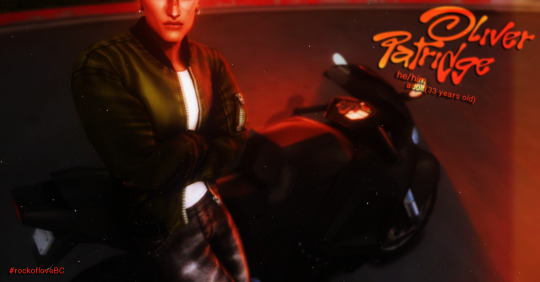
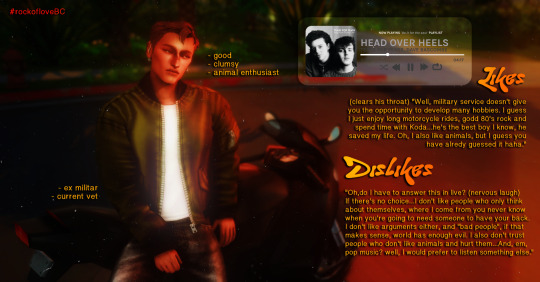
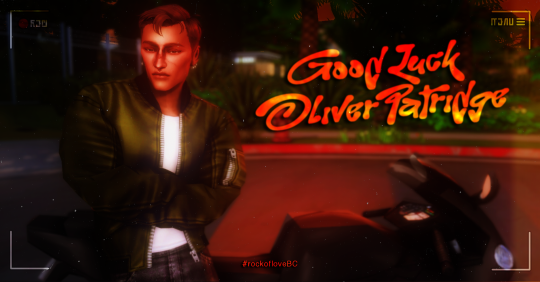
OLIVER PATRIDGE for rock of love with JACKSON ROTH!! a bachelor challenge by @rainymoodlet <3
★⠀›⠀introducing OLIVER PATRIDGE a 33y/o retired militar and a current vet ! click below to learn more about him !!
🌾! STORY
From his first little steps, Oliver was always a farm boy. He grew up in Henford-on-Bagley with his grandparents, running barefoot across the grass while surrounded by animals, from the smallest goats to the largest horses. He was never afraid of falling and getting dirty, much less of the animals that more than once gave him what he deserved for being meddlesome, but it was all part of learning. Once he finished his compulsory studies at the small town school, he didn't have many outlets and much less idea what he wanted to do. He only knew that he didn't want to lose his freedom sitting in an office chair in front of a computer. So, taking advantage of his good physical shape, he entered the army as a veterinarian and years later joined the K9 where he met Koda, a German shepherd with whom he quickly became friends. Despite the constant risk to his life, Oliver was happy, until when trying to save one of his mates he suffered a serious accident where he lost his left leg and complete hearing in his right ear. Koda lost an eye in the same accident, so they both retired to Brindleton Bay where they opened their own small veterinary clinic.
🌻! FUN FACTS
☆ › He uses a prosthesis on his leg and a hearing system, so he hates when people talk to him on his right side. ★ › He was engaged to a woman until he realized he was gay, today they are best friends and have a daughter in common. ☆ › Since he grew up in a religious environment, he never accepted his homosexuality until he was twenty-eight years old. ★ › He loves baking for the people he loves, and also he has even learned to make pet friendly desserts. ☆ › Despite his clumsiness he is a great horse and motorbike rider.
🌿! OUTFITS
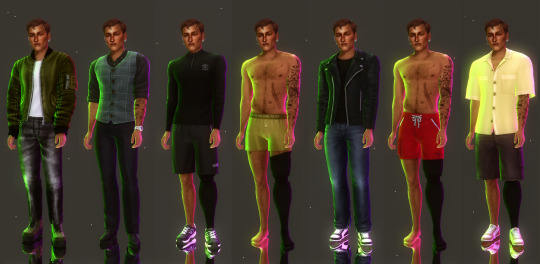
I took inspo of @wrixie for the editing style 💐
#another fun fact he is the sim with I explored the cats and dogs pack with when it first came out#also the strangerville pack#thats why he lost a leg 😶🌫️#I just updated him a little#now I want to play with him again 😭😭#rockofloveBC#my sims#oc: oliver#show us your sims#the sims 4#ts4#sims#sims 4#the sims#ts4 screenshots#simblr#s4 simblr#the sims community
68 notes
·
View notes
Text
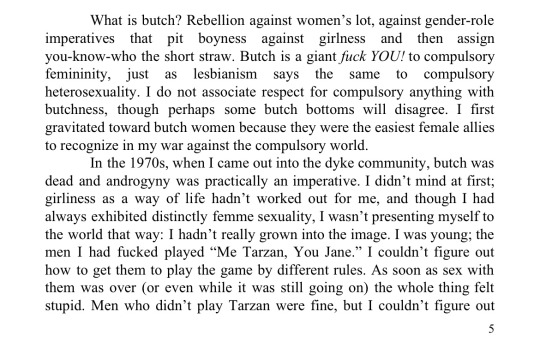
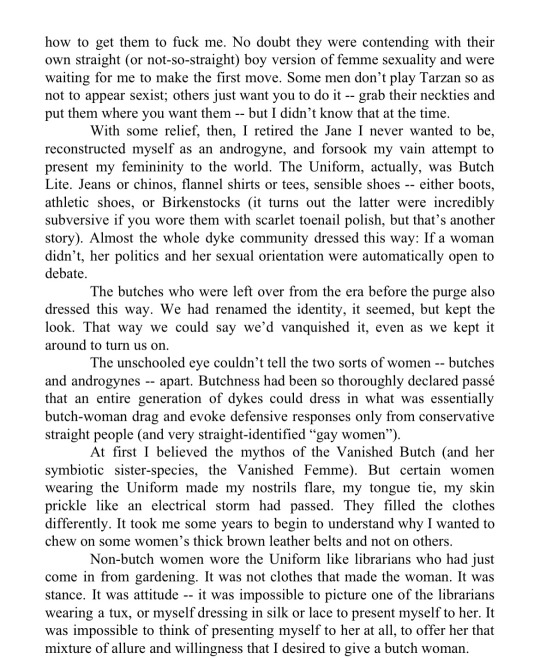
"What is butch? Rebellion against women's lot, against gender-role imperatives that pit boyness against girlness and then assign you-know-who the short straw. Butch is a giant fuck YOU! to compulsory femininity, just as lesbianism says the same to compulsory heterosexuality. I do not associate respect for compulsory anything with butchness, though perhaps some butch bottoms will disagree. I first gravitated toward butch women because they were the easiest female allies to recognize in my war against the compulsory world.
In the 1970s, when I came out in the dyke community, butch was dead and androgyny was practically an imperative. I didn't mind at first; girliness as a way of life hadn't worked out for me, and though I had always exhibited distinctly femme sexuality, I wasn't presenting myself to the world that way: I hadn't really grown into the image. I was young; the men I had fucked played "Me Tarzan, You Jane." I couldn't figure out how to get them to play the game by different rules. As soon as sex with them was over (or even while it was still going on) the whole thing felt stupid. Men who didn't play Tarzan were fine, but I couldn't figure out how to get them to fuck me. No doubt they were contending with their own straight (or not-so-straight) boy version of femme sexuality and were waiting for me to make the first move. Some men don't play Tarzan so as not to appear sexist; others just want you to do it-- grab their neckties and out them where you want them -- but I didn't know that at the time.
With some relief then, I retired the Jane I never wanted to be, reconstructed myself as an androgyne, and forsook my vain attempt to present my femininity to the world. The Uniform, actually, was Butch Lite. Jeans or chinos, flannel shirts or tees, sensible shoes-- either boots, athletic shoes, or Birkenstocks (it turns out the latter were incredibly subversive if you wore them with scarlet toenail polish, but that's another story). Almost the whole dyke community dressed this way: if a woman didn't, her politics and her sexual orientation were automatically up for debate.
The butches who were left over from the era before the purge also dressed this way. We had renamed the identity, it seemed, but kept the look. That way we could say we'd vanquished it, even as we kept it around to turn us on.
The unschooled eye couldn't tell the two sorts of women -- butches and androgynes-- apart. Butchness had been so thoroughly declared passe that an entire generation of dykes could dress in what was essentially butch-woman drag and evoke defensive responses only from conservative straight people (and very straight-identified "gay women").
At first I believed the mythos of the Vanished Butch (and her symbiotic sister-species, the Vanished Femme). But certain women wearing the Uniform made my nostrils flare, my tongue tie, my skin prickle like an electrical storm had passed. They filled the clothes differently. It took me some years to begin to understand why I wanted to chew on some women's thick brown leather belts and not on others.
Non-butch women wore the Uniform like librarians who had just come in from gardening. It was not clothes that made the woman. It was stance. It was attitude-- it was impossible to picture one of the librarians wearing a tux, or myself dressing in silk or lace to present myself to her. It was impossible to think of presenting myself to her at all, to offer her that mixture of allure and willingness that I desired to give a butch woman."
“Why I Love Butch Women” by Carol A. Queen, On Butch and Femme: Compiled Readings, (edited by I.M. Epstein) (2017)
#why I love butch women#dagger: on butch women#on butch and femme: compiled readings#on butch and femme#Carol queen#lesbian lit#lesbian#butch lesbian#butch#lesbian history#butch history#queer history#lgbtq+ history
265 notes
·
View notes
Text
Under the sakura trees..!
{ Summary }
Okay so, the hashiras decided to have a little party at some fancy restaurant. But muichiro had a secret relationship with you, and he didn't go to the party. OH YEA the party is compulsory. Forgot to mention it ~
ANYWAY, 2 hashiras decided to go hunt him down and down right drag him to the party. Until they saw both of you cuddling under the sakura trees !! 😆🫶
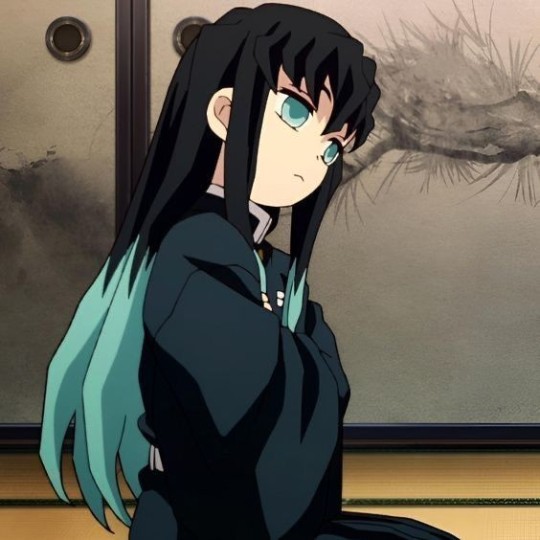
The hashiras decided to have a party as a farewell party for the retiring hashira, Uzui Tengen. Not something they should celebrate though.
Rengoku booked a table in a fancy restaurant and told the hashiras that the party is COMPULSORY. And anyone who didn't attend, would be hunted down by two random hashiras !
At the party, only eight hashira made it to the event, one didn't. Oh boy, I wonder who it is ? Shinobu asked " who didn't make it ? There's only eight hashiras "
mitsuri worriedly said " I think it was tokito-san ! He might have forgotten because of his amnesia !! "
shinobu said " impossible, I wrote on his palm a permanent marker of the date and time of the party and the location. "
Uzui scoffed, before exclaiming " well, then 2 fellow hashiras are gonna have to look for him. Who is it gonna be ? How about we vote for who to go ? " everyone agreed with the idea and started casting the votes.
Well well well, don't be surprised now. Hehe I'm gonna purposely select the 2 hashiras that don't get along.
In the end it was tomioka and shinazugawa !! Tomioka looked like he was glad because he could go out and miss out on the party, but shinazugawa looked pissed.
Both of them looked everywhere, before their last stop to look for him, the sakura trees.
Y/n's pov
"Mui, aren't you gonna go to the party ? Your already late" you said, sitting beside him.
" no, I am not going to go, I bet its gonna be boring. And who would want to go to a party by themselves when I have you here ? " muichiro asked.
You could feel your face getting hot when he said that. You buried your face into his chest while he wrapped his arms around you.
"The sakura's are beautiful..aren't they ?" Muichiro asked while caressing your cheek.
Your back on his chest as you both watched the sakura blossoms together.
Muichiro's hands wrapped around your waist as you sat on the hashira's lap. It was truly a blissful moment together.
Sitting in silence and admiring the sakura blossoms, it was very comforting to watch them slowly fall onto the ground. One even fell on your head
Giyuu and shinazugawa's pov
"Shinazugawa, I found them." Tomioka said, hiding behind a tree and spying on both of you. "
"Har ? Them ?" Shinazugawa asked, in curiosity of who was with the mist hashira, he saw the both of you cuddling under the sakura trees. His expression softened as he looked at the both of you. "Well, let's just leave them be, we will just tell the hashira's that we couldn't find him." shinazugawa scoffed while waving his hand.
Giyuu internally wished that the both of you have a long relationship and wished good luck for tokito if he ever wants to marry you.
Ok this took me 2 lazy days to finish. It still looks kind of short though 😭
#muichiro x y/n#mist hashira#muichiro tokito#muichiro tokito fluff#muichiro#muichiro headcannons#muichiro x reader#muichirou x reader#muichiro tokito x reader#mist pillar#kny muichiro#kimetsu no yaiba#kny#kny x reader#kny x y/n#kny x you
376 notes
·
View notes
Note
This might sound silly and i know bruce is bisexual and all but from a queer standpoint, the scene where he proposes to selina feels a lot like compulsory heterosexuality. "I love you. I HAVE to love you."
And considering the timeline, joker was HIDDEN INSIDE BRUCE'S BASEMENT my god the implications, the metaphor....
Yeah, the whole thing is... [clears throat] very interesting. These two panels, which happen relatively close in time, put it into perspective:
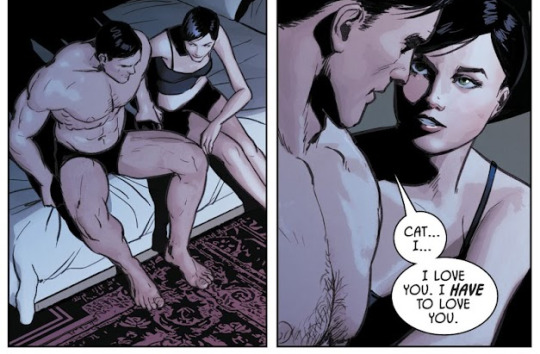
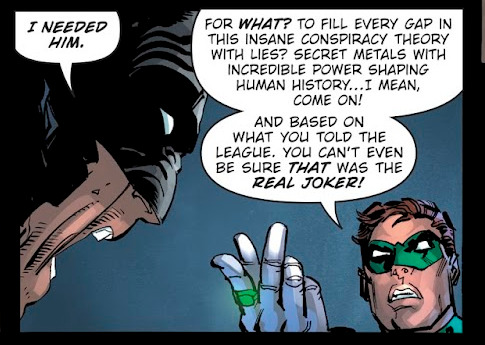
Batman (2016) #32 // Dark Days: The Casting
However, to be entirely honest, I don't think Bruce proposing to Selina, and that whole arc... can be boiled down to just compulsory heterosexuality. It's more complicated than that. Bruce is doing this after interacting with the Batman of Flashpoint, his own father, who begs him to try and be happy. And Bruce's idea of happiness, very much inspired by Thomas', is settling down with a woman and having a family. Gaining peace.
Tom King is the one who wrote the wedding arc, and the whole thing is permeated by this... typically masculine, American idealization of women as this isle of peace that a tortured man yearns for, but can never fully choose. I'm sure there's names for this trope or stereotype, but I'm too lazy to look this up. Think Michael Mann movies, think James Bond movies, think stories about criminals and agents and soldiers leading a dark violent life aspiring to put down arms, and the whole dream being entangled with a woman. A female character who usually isn't fleshed out beyond the representation of leaving a life of violence behind, having a nice wife and nice children in a nice house with a nice white picket fence. Tbh it's not surprising to me that King ended up writing Bruce and Selina with these undertones, because of King's infamous background with the CIA before he became a comic book writer.
And thing is, I don't think it's inaccurate to portray Bruce this way. Bruce has lead a long life of violence, and he wants to want to stop. He wishes it didn't define him as much as it does, he wishes there was another path for him-- and this wish drives his attempt to settle down with Selina. "I have to love you" is less about "you're a woman and I should marry a woman", it's more about "if I love you I am more of a human being, and I need that." Yes, it's compulsory heterosexuality too, in the sense that Bruce is drawing from the heteronormative idea that happiness can only be achieved through normality, and normality = wife and retirement. But it's also a sad, desperate attempt at salvaging himself through Selina, whom he does love... but the things he loves about her are less about her, and more about himself. In the end, his own subconscious acknowledges all of it, during the Knightmares arc:
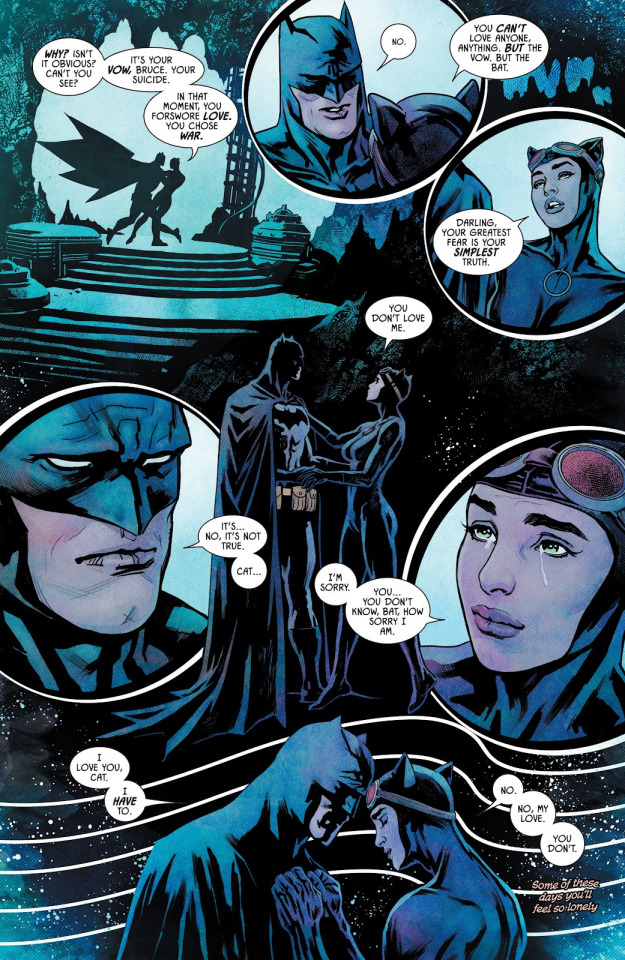
Batman (2016) #69
[sigh] It's all quite sad. And I've said it in a different post, but this is partly why -- in a seemingly paradoxical way -- a relationship with Joker has the potential to work. "You can't love anyone but the Vow, but the Bat," Selina (a figment of his own mind) tells Bruce. And Joker is part of the Vow. In many ways, over the decades, Joker has become the endgame of the Vow, the incarnation of all the things the Bat is supposed to defeat. It's fucked up and makes me want to chew on glass, but the Bat could allow loving Joker, because loving Joker would be a part of the Mission.
Anyway, I went on a bit of an unncessary tangent, but yeah! I do agree, Anon. So many implications.
248 notes
·
View notes
Text
Graves + Shadows Headcanons [Part 2] [Part 3] Words: 585
Unsurprisingly, he's very protective of his Shadows. Yes, they're mercenaries and soldiers and very much capable of looking after themselves, but he will not tolerate it when clients treats his Shadows as expendable. They are his soldiers.
Graves has absolutely gone out of his way to get to know the Soldiers that work under him. He knows each and every one of them by name, a random fact about them and at least one of their interests.
Would and has killed for his Shadows at one point or another and would do it again. The same goes vice versa.
Movie night at least once a month in the rec room is compulsory.
Team bonding exercises/days out are also compulsory. They all need to get along one way or another if they're going to be relying on each out out in the field.
Has offered himself in exchange for the safe return of one of his soldiers who was captured during a mission.
Actually put an age restriction on becoming a Shadow. Being a mercenary isn’t easy and it’s very different to being a soldier in the army. All shadows are over 21 when hired, but even then most are over the age of 25.
Due to the nature of their roles, being injured enough to lose a limb isn’t as rare as Graves prefers. When this happens, he has always made sure the Shadow affected has access to the best medical care as well as prosthetics should they want it. If they decide to leave/retire from Shadow company after that, they are still given access to the best medical care money can buy funded out of Graves' own pocket.
Is surprisingly good at cutting hair! Some Shadows don't feel comfortable having a stranger cut their hair/see their faces underneath their masks if they wear one often. He learnt how to cut hair pretty well from his momma.
HUGE on his Soldiers going to therapy. Some missions are harder than others and especially stressful, it's important his Shadows have a place to vent.
Has several chefs with different specialities in the kitchen who are all able to create and cook nutritional and delicious meals that all cater to everyone’s eating preferences.
Many of the younger Shadows have called him dad at least once by accident. It’s a running gag at this point and Graves always laughs it off and then goes to his room to cry a lil bit.
Expanding on this, a lot of the Shadows view him as a parental/familial figure and Graves prides himself on that fact. He doesn’t see them as his own kids, considering some of them are older than he is, but he definitely considers all of them part of his family.
Further expanding on that, some of the older Shadows have called him 'son' on several occasions and he has caught himself almost calling them dad more than once.
One of his Shadows named their first born son after him. They brought little Phil to base when he was only a few weeks old and let Graves hold the kid and he 100% ugly cried and refused to give the baby back for a solid 2 hours.
Some of his Shadows have kids back at home. Graves has memorised all their names and birthdays and makes sure to send them a little something on their special days. The younger kids calls him Uncle Philly and he absolutely cried when he heard them go “Hi Uncle Philly!” across call once.

have a request? send one in!
#//i have so many more lmk if you wanna hear them#phillip graves#modern warfare 2#modern warfare 3#shadow company#cod mw 2022#modern warfare ii#mw2#mw3#mwii#mwiii
125 notes
·
View notes
Text
Bisexual Analysis Unit
A/N: I have officially come out of fandom retirement thanks to Spencer Reid. Only a fictional white man could send me into orbit like this. You go, spencer, you funky little bicon.
Contrary to popular belief, not all of the agents in the BAU are bisexual.
The BAU does, however, hold the all time record for the highest number of openly bisexual agents.
Dr Spencer Reid, Dr Alex Blake, Dr Tara Lewis, Jennifer Jareau, Penelope Garcia, Luke Alvez, Elle Greenaway.
Not to mention, of course, that Emily Prentiss herself openly identified as bisexual prior to her reading the “am I a lesbian” masterdoc and having some realisations about compulsory heterosexuality.
The day that realisation reached the grapevine was a very sad day for men indeed.
So yeah, in all honesty, it was inevitable that the BAU would get its nickname.
Even if the whispered rumours about the tightly buttoned-up former Unit Chief, Aaron Hotchner were never confirmed.
#criminal minds#criminal minds Drabble#Spencer read fic#headcanons#mine#bisexual Spencer Reid#bisexual#lesbian Emily Prentiss#jemily
30 notes
·
View notes
Text
Anyway, fucking obsessed with the implied Kirigan/Ivan friendship, so have some headcanons
- So Ivan is one of a relatively small group of survivors old enough to remember the previous Darkling - Aleksander's last identity. He's a military brat and the only Grisha in an all-otkazat'sya family, so he lost a lot of family members very young. Aleksander has always refused to have First Army emissaries coming onto Little Palace property with hostile attitudes and condescension to traumatise baby Grisha, so when a student loses a First Army family member, he tends to break the news himself; it's the least he can do given none of them asked to be forcibly enlisted in a war they didn't start. Ivan, whose family were virtually all First Army, got pulled out of classes for a sombre talk with "Kirigan Sr" a few times, and developed a lot of respect for him.
- At some point, while Ivan is still young, the old Darkling retires to the family estate, citing age-related health concerns; even Grisha get old eventually. He completes the rest of his service via correspondence, and sends "his son" Aleksander into the Second Army to train to replace him.
- This is a habit of Aleksander's - when he changes identity, he starts back at the bottom and works his way back up through the ranks. A General needs a lot of things to do his job effectively: a network of loyal, trustworthy lieutenants to delegate to, a history of proven military experience, and the trust of the monarch he serves. Changing identities essentially means he loses all that, and the best way to build it back is to rejoin the army. His old guard - who not only remain loyal to his old way of doing things but also could potentially figure out his ruse - can be respectfully grandfathered out to less strenuous positions, replaced with new underlings loyal to his new self, who served with or under him on the front lines. By the time he takes over at court again, he's gained a whole new military history, and the king has met him several times already, to pin medals on a very promising young officer. It's easier to just have a new military career than to come in unproven and deal with the consequences at court.
- When Ivan is old enough to fight, he ends up serving under then-Captain Aleksander Kirigan. He has no idea that his new CO is the same old man who patted his shoulder while he bawled into his kefta over his dead father and brothers, but Aleksander remembers Ivan, and earmarks him for future leadership roles. There's always a superior/underling professional boundary there, but over the years Ivan and Kirigan become quite close, and eventually Ivan becomes his de facto #2. As someone who has no one, this relationship is incredibly meaningful to Ivan, and he responds with the kind of gruff affection and trustworthiness that Aleksander hasn't had in a long time. So while he'd never admit it, Ivan's friendship is very important to him too.
- Ivan's period of compulsory service ends. He has options, limited though they are, to leave the Second Army; he could take a research postgraduate place at the Little Palace, or become a teacher for small Grisha, or find paid work in a noble house somewhere. He refuses all of them. What he wants - what he's always wanted - is to be a career soldier.
- So when he's medically discharged from service, he's devastated. It's battle-shock, they tell him, and it makes him a danger to himself and others on the front lines. Kirigan takes a bullet dragging him, frozen, out of the way of advancing Fjerdans with repeating rifles. He's not fit to fight.
- And suddenly, he's utterly lost. Fighting is all he's ever known, the only thing he's good at, the only future he ever saw himself having. He makes a few comments to friends that leave them seriously concerned, and one of them goes to the newly-minted General. Aleksander pulls some strings on Ivan's behalf to stave off a complete discharge. Instead of being booted out of the army completely, he's shunted sideways into a new job as Kirigan's aide-de-camp - basically a personal assistant to run his life for him while he focuses on Military Things.
- It's not what Ivan saw in his future, but he's incredibly grateful not to be sent home to rot. He throws himself into his new role with everything he's got, determined not to make Kirigan regret it. He makes sure correspondence is sent on time, he makes sure the General gets where he needs to be when he needs to be there, he manages supplies and personal requests and bodyguarding. He's still Kirigan's right hand man, just in a different sphere. And over time, as the pressure of chessmastering two wars ramps up, he takes on more and more little tasks and becomes increasingly indispensable until Aleksander really isn't sure how he used to function without Ivan. There's a kind of symbiosis there, eventually. Ivan is Pepper Potts to Kirigan's Tony Stark: he usually knows what his boss needs before Kirigan asks for it, he knows a lot more about Kirigan than he'd ever let on, and Kirigan would be far less effective and put-together without him.
- One day, Ivan meets Fedyor Kaminsky. Ivan proceeds to spend the next few years pining over Fedyor Kaminsky, because he is emotionally inept, sharp-tempered and struggles to endear himself to anyone that isn't also a gruff, hardened war veteran. Fedyor is young and idealistic and still believes in things like hope and heroism. He's still in active service, but he's thinking of maybe leaving after the compulsory term to teach. He's good with the little Grisha.
- This crush shocks fucking everyone who knows Ivan, because at this point it's basically a running joke among the Little Palace's higher-ups that he'll never marry - he's too devoted to the General to have room in his life for romance. Fedyor is not what anyone - Ivan included - expected Ivan to like, but hey, opposites attract. Kirigan tolerates several years of long-distance Yearning™ with good grace.
- Fedyor and Ivan court for quite a while, and figure out how they fit a) together and b) into each other's lives. Fedyor has a long hard think about whether he can see himself marrying a man like Ivan - he knows Ivan is pretty codependent with General Kirigan, knows how traumatised he is, knows how dedicated he is to his job, knows he's uncertain about ever wanting children, knows that their marriage would essentially be "This is my husband Ivan and Ivan's boss, General Kirigan." And eventually, he decides he can deal with that; Ivan is worth it. He stays in the army rather than leave, to be close to Ivan.
- Ivan brings up the wedding to Aleksander precisely once, to tell him that he'd be honoured if Aleksander would officiate. The way he says it is offhand, low expectations, because a General has more important things to do than go to an employee's wedding. Aleksander hmms, not even taking his eyes off the report he's reading, and says, "Give me a date when you have one and I'll see if I can spare the time."
- He makes the time. Ivan usually manages his schedule, but he damn well makes sure that day is free personally, because he knows Ivan won't prioritise his wedding over a meeting with the king, or whatever, and nope. He's unavailable for meetings that day. He has somewhere to be.
- He marries them. And wrangles a whole three weeks off for Ivan, so they can have a honeymoon.
- However. Going on a honeymoon means leaving Kirigan unattended, so Ivan coming back from his honeymoon is basically this:

- And like, it's not that Aleksander can't look after himself. It's just that Ivan has been doing so much for him for so fucking long that he's forgotten he needs to do those things. He's so used to Ivan Handling It, that it's only when it comes back to bite him in the ass that he's like oh, yeah, Ivan is on leave. Ivan has literally never seen Kirigan this openly glad to see him, please fix his calendar he has four meetings today in four different places and they're all at the same time, never leave again.
- Fedyor becomes bodyguard #2 after a brief blip in their marriage where he and Ivan spend a lot of time rowing over how little they see each other. He feels neglected, and he's second-guessing whether he can tolerate the Ivan-Kirigan codependence issue. Ivan and Aleksander are not the type to have deep conversations about their feelings - they bully each other into self-care once it starts affecting their ability to do their jobs. Ivan bullies Aleksander into eating or sleeping or getting fresh air, and Aleksander bullies Ivan into admitting he's having marital issues. His solve is to offer Fedyor a job - that way, he and Ivan will get to spend most of their time together. Sharing his duties with Fedyor also frees up a fair amount of Ivan's time, which is hard for him at first, but good for their relationship in the long run.
- Fedyor develops his own relationship with Kirigan, over time. Sometimes, his softly-softly approach can get results out of a stressed-out sleep-deprived General where Ivan's no-bullshit confrontational style would cause a row. They respect each other, and like each other as boss/underling, but there's not the friendship there that there is with Ivan. The professional barrier is a lot more pronounced - Ivan can get away with calling Aleksander "Kirigan" at times - when he's being particularly vexing, mostly - but Fedyor could not.
- By canon, they've settled nicely into their You, Me & The General Makes Three marriage. It's become an in-joke between them that Kirigan is, in turns, the third spouse, the kid, or the dog:
("Fedya, I don't know if I'll ever be ready to be a father. I have no idea how to look after a child."
"Oh, nonsense, darling, you do a wonderful job every day with General Kirigan.")
("Beloved, you should go rescue your other husband. The Kerch ambassador has him cornered by the punch fountain.")
- Genya also gets in on this vein of in-joke from time to time - but only with Fedyor, never with Ivan.
("So if you two ever divorce, who gets custody?"
"Of the General? Oh, he does. It'd be cruel to separate them, you know? They'd pine.")
- They are all under the impression that the General is completely unaware of these jokes, because they're unprofessional and he'd surely disapprove. They have no idea that when Aleksander enters a room without Ivan half a step behind him, half the time Nikolai still thinks it's funny to ask, "Where's the rest of you?"
- And despite everything, they still both refuse to admit they see each other as anything more than, basically, boss and devoted servant. The last ~150 years? Entirely professional.
But. Yeah. Nah. Friends.
#aleksander kirigan#ivan kaminsky#fedyor kaminsky#fivan#darkolai#sab headcanons#also gonna tag this as#sab d3#because all my headcanons are d3-inspired#sab
164 notes
·
View notes
Text

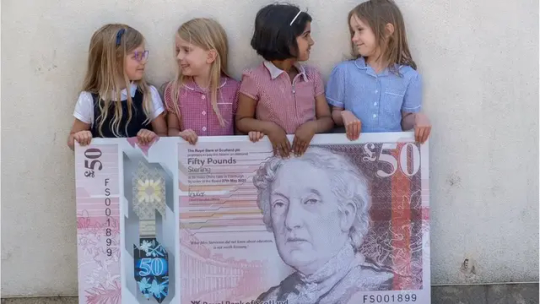
Flora Clift Stevenson the social reformer and suffragette was born on 30th October 1839.
Born into a merchant family in Glasgow the youngest of 11 children. Her father was a wealthy Glasgow industrialist; when he retired the family moved to Edinburgh, and Flora spent most of her adult life living at 13 Randolph Crescent in the West End with her 3 sisters. The Stevenson sisters were all active in the mid-nineteenth century Scottish women’s movement. They all supported women’s suffrage, and were founding members of the Edinburgh Ladies’ Educational Association which was founded in 1868 to campaign for higher education for women. Flora was also committed to improving education for society’s poorest children; as a child she started a class in her home to teach messenger girls basic reading, writing, and maths skills.
In 1863 Flora joined the Edinburgh Association for Improving the Condition of the Poor as a district visitor, investigating the circumstances of charity claimants and assessing whether or not they were ‘deserving’ of support. She also joined the committee of the United Industrial Schools of Edinburgh, a voluntary body that organised schools for poor children. Flora believed that compulsory school attendance was central to improving the lives of poor children in big cities.
In 1873 Flora was elected to the newly formed school board for Edinburgh. School boards were the first public bodies in Scotland which were open to women. As a result of her experience she was placed on the destitute children’s committee, where she was responsible for a scheme that gave food and clothes to poor children on the condition that they attended school. She also persuaded the school board to set up a day school for truants and juvenile delinquents, which was the first of its kind under the control of a school board. Flora’s expertise in this area was well respected; she served on several committees advising the government.
Flora’s belief in women’s rights carried over into her educational philosophy. She believed that girls and boys should be treated the same in education, and argued against the school board’s policy of giving girls 5 hours less teaching than boys every week so they could practice needlework. She believed that boys should be taught household management as well as girls, and that unmarried female teachers should receive equal pay.
Flora’s dedication to Edinburgh’s education system was respected and acknowledged. In 1899 a new primary school in Craigleith was named after her, and in 1900 she was unanimously elected to the Chair of the Edinburgh school board. In 1903 she was awarded an honorary degree by the University of Edinburgh, and two years later she was given the Freedom of the City in recognition of her service to Edinburgh’s philanthropic institutions and the school board. When she died in September 1905, thousands of schoolchildren lined the route of her funeral. She is buried with her family in Dean Cemetery in Edinburgh.
In August 2021 The Royal Bank of Scotland issued a new £50 note with Flora Stevenson on it, the pic shows pupils from Flora Stevenson Primary School at Cmely Bank in Edinburgh on it's launch day.
11 notes
·
View notes
Text
Warning! Long post alert!
Thanks to @maybezax (Zax) for posting a clip on Twitter, showing several drivers crouching in exhaustion in the pit lane (not even in the shade, where this would make a bit more sense) after the 2024 Singaporean Grand Prix. It is one thing for drivers to put everything into a race, but it is unusual to see this many drivers collectively doing this at the same time. Indeed, the last time I saw this was Qatar 2023.
For anyone who doesn't remember the debacle that was Qatar 2023, the drivers were asked to race in a ridiculously hot and humid place, in cars that have to be driven with precision at high speed. It was a blatant safety issue, confirmed by multiple drivers reporting either passing out or neither do so in the cars, vision problems, someone vomiting and a driver having to be persuaded to retire (because one of the symptoms of heat exhaustion is not getting the signals to say one is ill until it the situation is severe).
- Not written names because names aren't the point here. This is about the general safety situation and anyone could easily have swapped reactions with another - or had other serious reactions - because severe dehydration is like that.
One of the ideas that was proposed was for F1 to pay attention to the wet-bulb global temperature for their location. F1 might not have adopted the idea, but it occurred to me to check, so we can see whether this was weather-related or a bunch of drivers simply went, "It's the last race before several weeks' break, let's put absolutely everything onto the track to end this phase of the season".
I've had a look at the wet-bulb rating for Marina Gardens (which I think is the closest weather station to the track that measures WGBT) and it had a wet-bulb of rating 35, or Black. This is above the Green-Yellow-Red rating Singapore usually uses for this purpose (red is for 33 C + and it is required in Singapore to offer 10-minute breaks every hour, to every worker in an outdoor occupation in these conditions https://www.mom.gov.sg/heat-stress-measures-for-outdoor-work/faqs-on-heat-stress-measures-for-outdoor-work ).
Exact readings:
S108 Marina Gardens Drive Temperature: 29.1 degrees Celcius Relative Humidity: 80.7% WBGT rating: 35 WGBT Rating: BLACK Time taken: 2024-09-23, Time 06:15:00, +08:00 ahead of the UK
(Please note that this is at the end of the night and the sun will only just have started rising. Usually, humidity drops during the night). If these drivers make it look like it was ridiculously hot and sticky out there… that's because it was.
Singapore has a Workplace Safety and Health Act covering this situation for employers and organisations alike: if the WGBT is 32 degrees or higher, and the job has to be done outdoors, every company must provide 10 minutes of rest to every worker (longer breaks are recommended above this, but aren't compulsory and I can't imagine the FIA jumping in to impose these). No exemption for sports appears to exist (there's a limited one for military personnel), nor is any other heat protection measure considered mitigation for this. The choices are:
1) Shorten the event to below an hour. 2) Postpone the event until WGBT is below 32 degrees Celcius. 3) Red-flag the race for 10 minutes every hour, starting the count from when the last marshal has had chance to get to the rest area following the last car entering the pits, and giving all marshals chance to resume their posts before resuming the race.
The race was longer than 1 hour. I did not see the FIA or the teams offer a break. (For those of you saying, "the drivers could have parked if they wanted to follow the law", the FIA is responsible for the marshals and they can't take their mandatory break until all the athletes are taking theirs, so mandation from the FIA and co-enforced by teams would be the only way to make this work).
Since the FIA has not obeyed this standard, it is now liable for every single issue that occurs from this. We know the F1 drivers struggled and they train for this exact scenario quite intensely. If any marshal complained to the Ministry of Manpower about this (and I would be surprised if all of them handled it better than the drivers), then the FIA would be liable, which in turn would make the teams jointly liable - even if everyone in the teams and travelling part of the paddock were OK with this arrangement.
It also underlines how important it is that WGBT is adopted before Qatar and the FIA and teams all be bound by it. I don't know what Qatar's laws are about WGBT, but it is unlikely that a F1 struggling with a Singapore that it's been to successfully for years prior to this would otherwise be equipped to handle a Qatar that it barely got away with last time it went there (on a less stressful calendar, with a FIA that was less complacent about safety).
#f1#motorsport#motorsport safety#dehydration#tw medical#heat stress#heat exhaustion#wbgt#wet bulb global temperature#workplace safety and health act
10 notes
·
View notes
Text
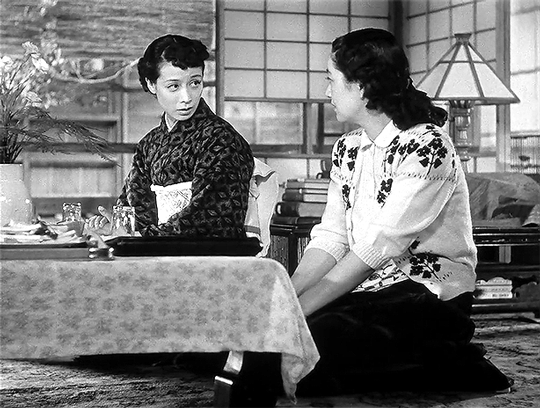
“Early Summer is about the difference between the married and the unmarried, how the married try to persuade or (worse) coerce the unmarried into getting married, and how maybe that isn’t always such a good idea. This theme is explicitly called out more than once in the film.
Early Summer further implies that there may be a good reason why some unmarried people, including Noriko (but not just Noriko), don't want to marry: they may be “that type of person,” as the young lesbian Fumi described herself in Takako Shimura's manga Aoi hana. This subtext rises briefly to the level of text at least once before being ambiguously dismissed.
Both Ozu and Hara remained unmarried until their deaths, and to my knowledge neither were ever credibly reported as having a romantic relationship with anyone. Per Donald Richie’s commentary on the Criterion release (referenced in the next post), Ozu was reported to become angry at any talk of his marrying. Meanwhile Hara, though termed “the eternal virgin” by a film producer for her film image, in real life had close friendships with many women, including a hair and makeup artist whose friendship with Hara began early on and continued after Hara retired into obscurity at the height of her career.
In modern terms we could therefore hypothesize Early Summer as a queer film subtly but firmly protesting compulsory heterosexuality, made by a (possibly) queer director and starring a (possibly) queer actor.
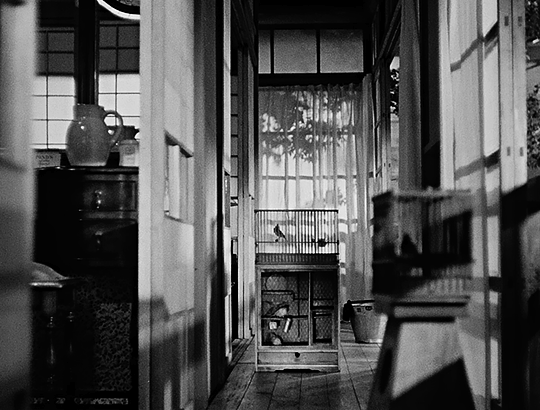
…
Early Summer opens with three establishing shots: first a shot of a dog walking freely on the beach with the ocean in the background, then a shot of a single bird in a cage outside, and then a final shot of birds in cages inside a house. This is the house in the oceanside town of Kamakura in which Noriko (Setsuko Hara’s character) lives, along with her brother Kōichi (Chishū Ryū), his wife Fumiko (Kuniko Miyake), Noriko and Koichi’s father (Ichiro Sugai) and mother (Chieko Higashiyama), and Kōichi and Fumiko’s two young boys.
If we wish, we can interpret the first and third shots as showing a strong contrast between freedom in nature on the one hand, and the restrictions imposed by society and the Japanese family system on the other. In this interpretation the second shot represents Noriko, who has a degree of independence that her mother and Fumiko do not have, but is still constrained by the bonds of family and society.
In the following scenes Kōichi takes an early train to his job as a physician, while Noriko goes to the Kita-Kamakura station to catch a later one. There she meets Kenkichi, another physician who works with Kōichi and who (along with his mother) is the family’s next-door neighbor. Kenkichi tells her that he’s been reading a book, implied to have been recommended by Noriko. The Criterion release describes it only as “this book,” but the BFI release names it as Les Thibaults.
Les Thibaults (published in Japanese as Chibō-ka no hitobito, and apparently relatively popular in Japan at the time) is a multi-volume French novel that begins as one of its protagonists is discovered writing passionate messages to a fellow schoolboy — something Ozu himself was apparently falsely accused of — and is then separated from his friend. Later volumes describe their diverging paths in life. Why might have Noriko recommended this particular novel to Kenkichi? Hold that thought.
We then see Noriko at work, as a secretary and executive assistant to the head of a small firm (Shūji Sano). As she talks with her boss regarding café recommendations, her best friend Aya (Chikage Awashima) arrives, there to collect payment for the boss’s spending at the restaurant her mother owns. Noriko’s boss wonders when they’ll both get married, and refers to them as “old maids.”
(Before becoming a movie actress, Chikage Awashima was a musumeyaku top star in the Takarazuka Revue and occasionally played “pants roles,” i.e., as a female character dressing as a man for plot reasons. Osamu Tezuka was a fan of hers, and she supposedly inspired the main character Sapphire, “born ... with a blue heart of a boy and a pink heart of a girl,” in his manga Princess Knight. Why might this be relevant to Early Summer? Again, hold that thought.)
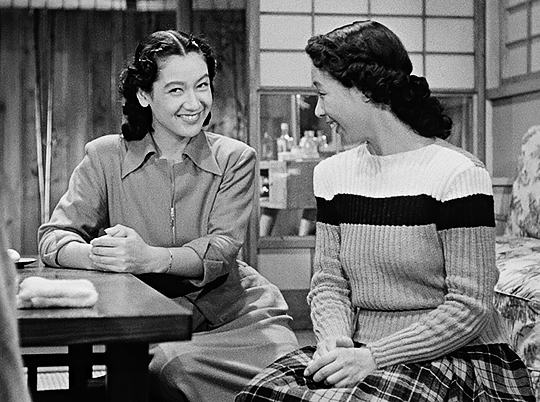
After work, Noriko meets Kōichi and Fumiko for dinner. While they eat, Kōichi complains about post-war women (“[They’ve] become so forward.”) and Noriko corrects him: “We've just taken our natural place.” Kōichi then claims that’s why Noriko can’t get married, and she rebukes him: “It’s not that I can’t. I could in a minute if I wanted to.” (Note: a bit of foreshadowing here.)
Next occur the two key events that set the main plot in motion. First, Noriko’s great-uncle (Seiji Miyaguchi) arrives for a visit. He wonders why she isn't married yet. “Some women don't want to get married,” he tells her. “Are you one of them?” Noriko laughs and leaves the room, but the seed has been planted in the minds of her family.
Noriko’s boss also thinks it's time for her to get married, and he has just the man for her: “He’s never been married. Not sure if he's still a virgin.” Her boss has photographs to show her, and won’t leave her leave without taking them.
Meanwhile Noriko and Aya mercilessly tease one of their married friends, and after attending another friend’s wedding have dinner with that friend and another married friend, with a side dish of sexual innuendo. One of the married friends brags about how she spent a rained-out honeymoon playing with a “spinning top”: “My husband is very good at it.” Her friend cautions her: “You shouldn't flaunt it in front of the single girls.”
However, Aya is not impressed with the implied amazingness of heterosexual intercourse: “Silly! We don’t play with tops, do we?” Noriko enthusiastically agrees with her: “That’s for children, isn’t it?” The debate between the married and the unmarried continues, after which Noriko goes home, where Kōichi and Fumiko are scheming regarding the marital candidate proposed by Noriko’s boss.
Kenkichi’s mother then visits Noriko’s mother, and tells her that a man from a detective agency has been asking about Noriko: “I realized it was about her marriage.” We also learn that Kenkichi’s wife died two years ago (leaving him with a young daughter), and that he's not interested in remarrying: “All he does since his wife died is read books” (like Les Thibaults). Finally, we learn that Kenkichi’s best friend, Noriko’s brother Shoji, went missing in the war.
We now come to the climax of the first half of the movie. As Noriko’s nephews and their friends play with their model train set downstairs (one nephew asking if their father will buy them more train track), Aya visits Noriko and they talk in her room upstairs. Their married friends have made various excuses for why they couldn’t also visit; Noriko recalls how close they were at school and laments their drifting apart.
Throughout the first half of Early Summer Noriko and Aya are shown as mirroring each other’s gestures and speech. That mirroring continues in this scene (for example, they sit down next to each other at the exact same time and in the exact same manner), and then a very interesting thing happens. Ozu’s typical modus operandi is to continue a shot until someone stops speaking or moving, or even until they leave the room. But here he cuts immediately from Noriko and Aya simultaneously raising their glasses to drink, to Noriko’s father and mother simultaneously bringing food to their lips, as they relax sitting on a street curb in town.
If I were to speculate about what this juxtaposition might mean, if anything, I’d speculate as follows: that Ozu intended to show that, whatever Aya and Noriko might be to each other, they are as close, secure, and happy in their relationship as Noriko’s mother and father are in theirs — as much a couple as any other in the film, but not formally recognized as such.
Noriko’s father tells his wife, “This may be the happiest time for our family,” although he’s sad at the thought of Noriko leaving. They continue their conversation, and then are interrupted by the site of a balloon rising into the sky. “Some child must be crying,” Noriko’s father remarks. “Remember how Kōichi cried when he lost his balloon?”
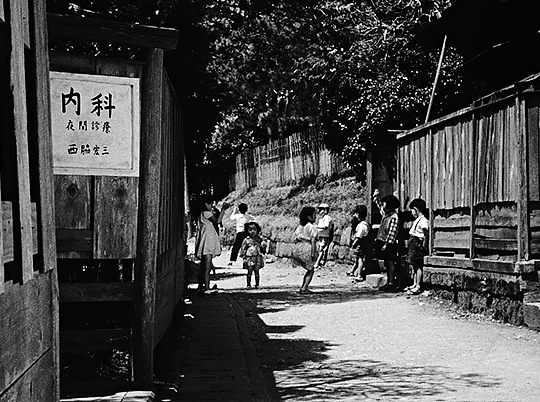
…
The good times continue as Noriko brings home a cake to eat with her sister-in-law Fumiko, and their neighbor Kenkichi drops in unexpectedly and is invited to share it with them. The scene re-introduces Kenkichi and brings up the subject of his remarrying — something he doesn’t want, but his mother (played by Haruko Sugimura) does.
…
In the meantime Noriko’s brother Kōichi has been pursuing the idea of a marriage between Noriko and an unseen bachelor first suggested by Noriko’s boss, including asking his friends and associates for more information on the proposed groom. The results are “very promising”: “He’s in the social register, and seems to be a fine businessman.” “How nice,” replies his mother, but, “how old is he?”
…
Then Noriko’s boss asks a few questions that we’ve been asking ourselves. While Noriko is away from work, Aya stops by, and the boss questions Aya on whether Noriko will go through with the match or not: “I don't understand her ... Is she interested in men?” Aya at first demurs: “What do you think?” Noriko’s boss has seen indications both ways, and presses the question: “Has she always been like that?” Aya responds in the affirmative. The questioning goes on. Aya tells him that Noriko’s apparently never been in love, “but she has an album of ... Hepburn photos this thick,” holding her thumb and forefinger about 4 centimeters apart.
Here we have the first of two translation issues. Aya actually refers to “Hepburn” without mentioning a given name. The Criterion subtitles — by Donald Richie, who should have known better — make this a reference to Audrey Hepburn, who’d had only small roles by then. It’s almost certain that this is instead a reference to Katherine Hepburn, who was a major star by the time Noriko would have entered middle school. Was the teenaged Noriko besotted by the androgynous beauty of Katharine Hepburn (who would have made a stunning otokoyaku)? It sure looks like it.
The subtext now threatens to become text, as Noriko’s boss learns that “Hepburn” refers to an American actress, and asks the obvious follow-up question about Noriko. In the Criterion subtitles it’s translated as “So she goes for women?” The BFI translation puts it more bluntly: “Is she queer?” What is Noriko’s boss really asking? Japanese speakers can correct me here, but I believe his actual question uses the term “hentai.”
Western fans are used to thinking of “hentai” as referring to pornography. However, my understanding is that at the time of the film “hentai” in colloquial Japanese would have referred specifically to sexual behavior that was considered abnormal. So if Noriko’s boss did use the term, another possible translation might have been “Is she a pervert?” Both the Criterion and BFI translations soften the question; in particular BFI’s “is she queer?”, while defensible, risks projecting our current ideas about “queer” (including its positive connotations) onto a film created in a different time.
In any case, Aya is determined to shut down any discussion of Noriko’s proclivities. “No!” she firmly replies. Noriko’s boss is apparently unconvinced: “You can never know. She’s very strange, in any case.” His prurient instincts aroused, Noriko’s boss then envisions another solution to the problem of Noriko, and queries Aya about it: “Why don’t you teach her?” “About what?” “Everything.” “What do you mean, everything?” He pats her shoulder and admonishes her: “Don’t try to be coy,” as we viewers pause to consider the implications of what he’s asking her to do.
Aya rejects this line of inquiry as well: “Don’t talk to me like that! That was rude!” Noriko's boss laughs, offers a half-hearted apology, and then (after telling Aya that Noriko won’t be back that day) invites her to lunch and quizzes her on her preferences in sushi: “Tuna” she says. He continues, “How about an open clam?” (which Donald Richie's commentary helpfully informs us is a euphemism for the vagina). “Sure,” she replies. “And a nice long rice roll?” “No, thank you!” His final words are, “You’re strange too,” and again I think I hear the word “hentai” enter the conversation.
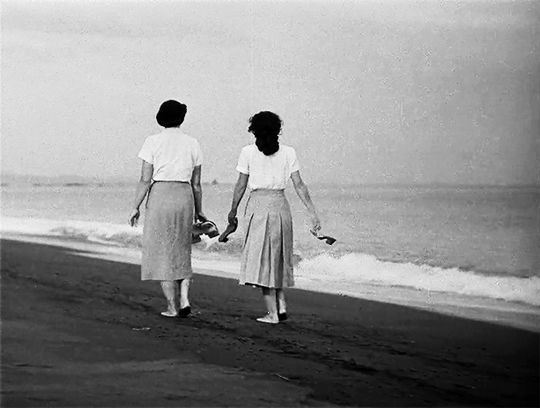
…
Recall that Kenkichi decided to accept an offer as a department head in a hospital in Akita, several hundred kilometers north of Tokyo and on the opposite coast. Noriko meets him in a café before her brother Kōichi is to host him at a farewell dinner party, and they talk about Shoji, Noriko’s other brother who went missing in action during the war. Kenkichi recalls how he and Shoji were best friends in school, often eating at this very café, indeed at this very table. Kenkichi tells Noriko that he still keeps a letter that Shoji sent him, with a stalk of wheat enclosed (probably indicating that Shoji was deployed in northern China). Noriko asks if she can have the letter, and Kenkichi agrees.
Afterward Noriko visits Kenkichi’s mother, while Kenkichi himself is still at his farewell party. Kenkichi's mother tells Noriko her secret dream (“please don’t tell Kenkichi”): “I just wish Kenkichi had gotten remarried to someone like you.” She apologizes and asks Noriko not to be angry (“It’s just a wish in my heart”), but Noriko stares at her with an intense expression (her usual smile absent), and asks her, “Do you mean it? ... Do you really feel that way about me?” Kenkichi’s mother apologizes again, but Noriko presses on: “You wouldn’t mind an old maid like me?” Then before Kenkichi’s mother can respond, Noriko speaks: “Then I accept.”
Kenkichi’s mother is incredulous. She asks Noriko several times to confirm what she’s saying, thanks Noriko effusively and weeps tears of joy at her good fortune, but continues to question Noriko about her decision even as Noriko leaves to go home. (Incidentally, this scene features a bravura performance by Haruko Sugimura.)
After she leaves the house, Noriko encounters Kenkichi, just returned from his farewell party. Noriko exchanges some small talk with him, but says absolutely nothing about what she just told his mother.
Noriko's decision then plays out across multiple scenes:
At first Kenkichi doesn’t understand what his mother is trying to tell him (“She accepted.” “Accepted what?”). When he finally gets the message (“She agreed to marry you. To become your wife!” “My wife?” “Yes. Isn’t it wonderful?”), he looks absolutely gobsmacked. His mother breaks down in tears again telling him how happy she is, and how happy he should be. He tries to play along (glumly echoing, “Yes, I’m happy”), but he looks for all the world like a man who would sooner eat nails than enter into another marriage.
Kenkichi’s mother doesn't understand why he’s not happy. She concludes, “What an odd boy you are.” The Japanese word here appears to be “hen,” which I understand to be a softer adjective than “hentai,” and not sexual in nature. But note that Kenkichi is now the third person after Noriko and Aya to be referred to as not normal in some way.
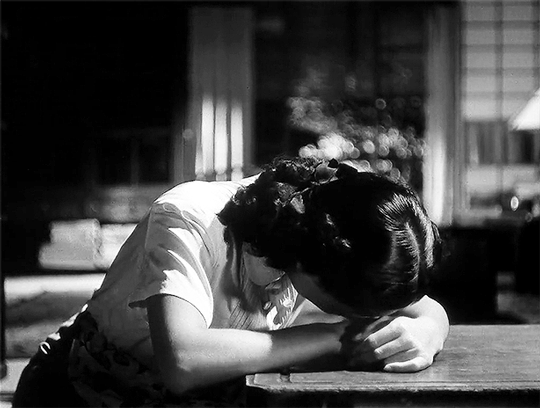
Meanwhile Noriko is interrogated about her decision by her family, especially by Kōichi, in a beautifully framed and shot scene — Noriko in white, her head bowed, her brother in black, barking questions like a prosecutor cross-examining a criminal. Noriko is unrepentant: “When his mother talked to me, I didn’t feel a moment’s hesitation. I suddenly felt I’d be happy with him.” Her parents retire upstairs to chew on their disappointment — Noriko walking silently past them on her way to her room — while Kōichi tells Fumiko, “What could we do now? She’s made up her mind. You know how she is.”
…
Meanwhile Noriko and Aya have their last scene together. It starts by echoing and completing the action at the end of their previous scene: then they raised their glasses together to drink, now they lower their glasses in a simultaneous gesture. Aya tells Noriko that she can’t believe Noriko would ever end up like this: she thought Noriko would be a modern woman living “Western-style, with a flower garden, listening to Chopin,” “wearing a white sweater, with a terrier in tow,” and greeting Aya in English — “Hello, how are you?”
Instead Aya now imagines Noriko wearing farmers clothes in rural Japan, speaking the local dialect. She playfully imitates country speech, and Noriko responds in kind: “Ya don’t look it, but ya talk like the locals.” “I figure to live in Akita when me and my man get hitched.” The subtext here I read as follows: Noriko knows how to pretend to be something she is not — a conventional heterosexual woman in a conventional heterosexual marriage — and she will accept doing so in her self-imposed exile from Tokyo, the price she must pay for avoiding what she considered to be a worse fate.
The tone then turns serious. Aya recalls meeting Kenkichi when they were in school, on a hiking trip with Noriko and her brother Shoji, and presses Noriko about her choice: “Did you already love him then?” “No, I had no particular feeling for him. ... I never imagined myself marrying him.” Noriko evades Aya’s questions about how she came to love Kenkichi, refusing time after time to acknowledge her feelings for him as those of love. Instead she insists, “No, I just feel I could trust him with all my heart and be happy.”
But trust Kenkichi for what? we want to ask Noriko. To respect her for who and what she is? To not want a conventional relationship with her? To not press her for sex or for children (after all, he already has one)? To keep her secrets, as she might keep any secret of his?
…
The family then gathers for one last commemorative photo. Without Noriko's salary they can no longer afford the house in Kamakura, so they break up: the parents to live with the great-uncle; Noriko to Akita with Kenkichi, his mother, and his daughter; and Kōichi, Fumiko, and their sons to some other less-expensive dwelling (perhaps an apartment in the Tokyo suburbs).
The parents recall when they moved into the house: “It was spring and Noriko had just turned 12.” Kōichi remembers that time as well: "She used to wear a ribbon in her hair, and she was always singing." But “children grow up so quickly,” her parents remark, and living together forever, "that's impossible."
Her usual smile nowhere in evidence, Noriko takes it all upon herself: “I’m sorry, I’ve broken up the family.” Despite reassurances from her father (“It’s not your fault. It was inevitable.”) she flees from the room, goes upstairs to her own room, and cries her heart out, distraught about the turn that her and their lives have taken.
The final scene shows Noriko’s parents at the great-uncle’s house, far from the sea. They glance at a wedding procession walking through the fields (“Look there. A bride is passing by. I wonder what sort of family she’s marrying into?”), think of Noriko, and resign themselves to the family's fate: “We shouldn’t ask for too much.” “We've been really happy.”
— Frank Hecker, “Ozu’s Early Summer Seems Pretty Darn Queer to Me”
#yasujiro ozu#ozu#queer history#setsuko hara#early summer#film criticism#queer film#gay subtext#queer coding#long post
48 notes
·
View notes
Text
It feels like I've been posting a bit recently (and indeed throughout Dracula Daily) around Victorian ideas of youth and age without ever putting any actual numbers on any of this.
This is all just me and my dear friend Mr Google, so do point out if I've got anything wrong. Where I haven't provided specific dates, this is broadly true for the 1890s.
Age 5-11: children were expected to be at school, which was compulsory (raised from 10 in 1893).
Age 11-13: children were allowed to work in factories, but they were supposed to continue attending school part-time.
Age 14-18: considered "young persons" by the Factories Act of 1878, teenagers were limited to 56.5 hours of work per week in textile factories and 60 hours in non-textile factories. (The same hours were applicable for women).
Age 16: the age of consent, as it is in the UK today (raised from 13 in 1885). Also a possible school leaving age, e.g. for junior clerks.
Age 18: the typical age for a débutante to come out in society, though this varied. She would be courting for a minimum of 6 months and be engaged for a further 6 before getting married. On average, upper-class girls married at 21 (this had increased from 18 over the course of the 19th century). Also the oldest possible school leaving age, for those destined to be educated professionals.
Age 21: the age of majority. People could marry at this age without parental consent, vote, enter contracts, and stand for elected office. In 1891, only about 2/3 of people reached their 21st birthday, compared with 99.1% of today's 21-year-olds in England and Wales.
Age 25: the average age at first marriage for women in England and Wales.
Age 26: the average age at first marriage for men in England and Wales.
Age 60: the age from which you could retire and receive a pension from the Railway Clearing System Superannuation Fund (the first one I could find with those details online).
Age 81: UK life expectancy in 2023. Only around 5% of men and 10% of women lived to this age in the 1890s.
188 notes
·
View notes
Text
i wanted to talk about episode 09-43, an episode that we recently released. i think it's a fantastic look into rikichi's character, and key to defining the relationship between rikichi's family and the depth of understanding between doi and rikichi.
i will be referencing the tsudoi setting and ridoi in this post. click away if neither interest you!
i'm interpreting tsudoi rikichi's 20s time period as untreated mental illness, which. makes sense given how he was raised. as a boy, he was in complete isolation save for his parents (until doi fell into his life), and there was a clear amount of pressure placed upon him to be a successful ninja. we see him at age 12 in other episodes, how yamada dismisses all of rikichi's attempts to just be a boy. there's more important things to do. be stronger, smarter, better. there isn't any time to indulge in childish whims, to be a regular family. just that alone would raise insecurities and a lack of real identity outside of his skills, but his parents are... complicated, to say the least. his father is never home, always using the excuse of work to keep away from his wife, and his mother is left by her lonesome, retiring from the kunoichi lifestyle to raise a child who would, too, leave her.
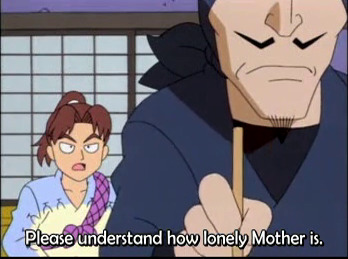
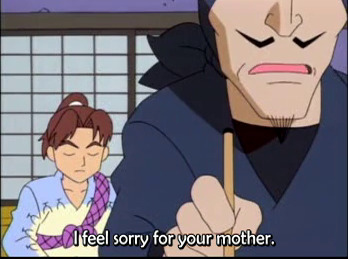
it's a simple request. come home. but yamada denies this to both of them-- and it's really unclear why. i, personally, like to interpret this as a case of compulsory heterosexuality on yamada's part, but that's another post. regardless, rikichi deeply sympathizes with his mother, and this cat-and-mouse of trying to get his father to see his wife is a constant plot point in episodes (usually to comedic effect).
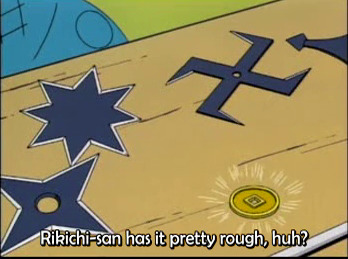
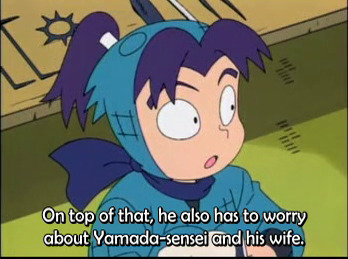
even the young trio understands this takes a toll on rikichi. he's a highly sought out pro ninja, constantly on the job with little time to rest, while also trying to mend the fringe relationship between his parents. i've seen a fair bit of fans finding tsudoi rikichi as a surprise, but to me, it makes perfect sense. years of this lifestyle would be enough for rikichi to break, to make mistakes, be impulsive and irrational, because he hasn't been allowed to be anything but perfect, even as a child.
rikichi finds joy in the mundane. eating good food, enjoying nature, watching the boys be boys. it's a snippet of a carefree life, a sample of what never will be. sometimes, i wonder how rikichi would've been if he was taught at ninjutsu academy. whenever we see rikichi, he's... alone. it makes sense-- having loved ones would make them targets for when rikichi made enemies, but... the connections the nintama make at school are so vital to each of them. can you imagine rantarou without kirimaru and shinbei? saburou without raizou? the committees without their 6th year senpais? impossible! yet rikichi's made it his entire life without really anyone by his side. yamada electing to raise and teach rikichi away from anyone else is... certainly a choice. rikichi's entire life has revolved around a lonely mother, an emotionally distant father, and his duty and pride as a ninja.
now, what does doi have to do with this? well. i found it curious that when doi explained what made rikichi happy about visiting ninjutsu academy, he left himself out of the equation. like. come on. let's be serious. doi is a huge pillar in rikichi's life, his older brother, someone who finally treated him like a child because he was one when they met, and i find it extremely hard to believe that doi wouldn't be a major reason for why rikichi visits, too. when the boys fail to understand why rikichi takes time to stop by, doi happily elaborates, because he knows rikichi so well... does doi underestimate how much he means to rikichi? doi is usually so perceptive... i mean, he's the one who notices how rikichi's expression changes when he comes and leaves the school. maybe he doesn't want to give himself too much credit for rikichi's happiness. i think doi is the type of person to be really proud of rikichi's growth, and he wouldn't claim that for himself. rikichi put in the work, after all. doi was simply there to guide him to it. ahhh.
i'll try not to get sidetracked by gushing about ridoi as whole. anyway. about the episode. a few shots in particular made me incredibly insane.

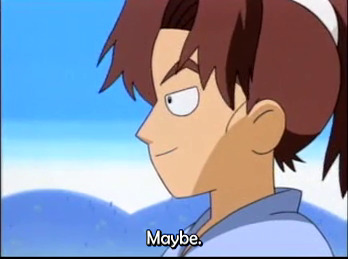
maybe, he says. noncommittal, distant. then surely there's something else he loves... but what is it?
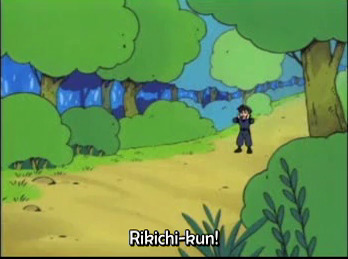
the immediate next shot gives us a huge fucking clue!!! god damn it. rikichi, you're so obvious. and yet doi doesn't see it at all... or maybe he does, but elects to ignore it. good luck to you, rikichi.
even more, when rikichi departs, i noticed that when he says goodbye, he's looking at someone in particular. i'm sure you can guess who that is.
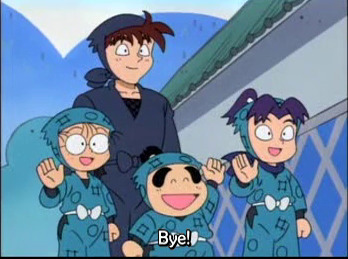
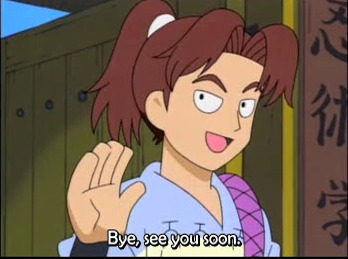
he's looking up, not down. gazing at doi, saying, see you soon. whoever worked on this episode, i owe you my entire life. i'll be thinking about this forever.
9 notes
·
View notes
Text
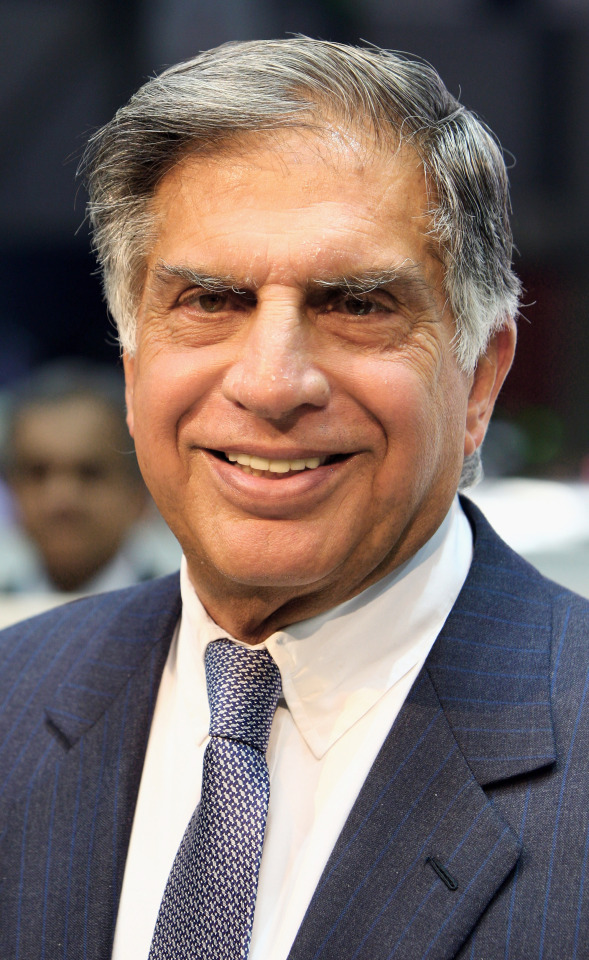
Ratan Tata
Indian business tycoon who turned his family’s Tata Group into a global player, and invested heavily in British industry
Ratan Tata, who has died aged 86, was India’s most celebrated industrialist. He modernised the unwieldy business empire founded by his great grandfather in the 19th century and internationalised it. In the process he spread his interests into western countries, with mixed results.
For the UK, that included the £271m purchase of the Tetley Group in 2000, followed more controversially by the acquisition of the steel company Corus for £6.2bn in 2007. Then, in 2008, Tata, himself a car enthusiast, added the troubled Jaguar Land Rover motor business for a further £1.75bn.
He joined the family firm, Tata Steel, in 1962. Educated in the US, and newly qualified as an architect, the young Tata had, he said, no intention of returning to India. But family ties won out. When his ailing grandmother, Navajbai, who had raised him, asked him to return he did so. He was soon promoted, building his reputation with tough reorganisation, followed by more troubleshooting at the electronics and textile companies.
In 1981, he was made chairman of Tata Industries, and found himself confronting an assortment of separate businesses, with different ownership patterns over which there was little formal control. He made a blueprint for reorganisation, having spent time at the Harvard Business School, but it was rejected after opposition from semi-autonomous bosses.
However, in 1991, the 81-year-old patriarch of the group, JRD Tata, chose him as his successor as the overall chairman. Asked why, he replied: “He has a modern mind.”
Tata soon demonstrated it with a tough programme of reshaping that, against continuing opposition, brought closures, job reductions, and the departure of the heads of the steel, hotel and chemical businesses.
He began to focus more on brands and less on heavy industry, and he benefited from the deregulation of Indian industry championed by Rajiv Gandhi. As part of it, he took the company more heavily into the motor industry. Tata lorries already dominated Indian highways, but now he moved into the car business in line with his own enthusiasms. While always seen as a man of modest habits, he had his own lovingly maintained collection of high-powered and classic cars, and delighted in driving them along Mumbai’s Marine Drive most Sundays.
Tata produced what was called “the first Indian car”, designed by and for Indians, in 1998. Ratan did some of the first drawings himself. The Tata Indica was a success. But when he went further a decade later, and the company conceived the Nano, a tiny saloon described as the world’s most affordable car at a price of about £2,000, the project failed. Such a cheap car was not enticing even to those “on two wheels” whom he hoped to attract.
In 1999 Tata had travelled to Detroit to discuss the sale of the motor business to Ford, only to be asked why his firm had gone into the passenger car business when it clearly knew nothing about it. Later he would turn the tables, buying underperforming Jaguar Land Rover from Ford and reviving it.
With sell-offs and cutbacks, Tata reorganised the group into 98 operating companies from more than 250, reducing the labour force by more than a third. He forged alliances with foreign companies and went into information technology.

He stepped down in 2012, observing the compulsory retirement rule he had himself introduced, but was still regarded as “chairman emeritus” and was brought back unhappily for a few months when his successor was sacked four years later.
His most shocking day came in 2008, when terrorists took over the Tatas’ Taj Mahal hotel on the front at Mumbai with great loss of life. The company has continued to support staff affected and the families of those who died.
Ratan was born in Mumbai, into the large Parsi Tata family, whose wealth came from a scattered collection of businesses including textiles, hotels, engineering, steel and tea. His father, Naval, had been adopted by the son of the founder, Jamsetji Tata. After Naval and his wife, Soonoo, separated when Ratan was seven, the child was brought up with his younger brother, Jimmy, by his grandmother in a grand Tata mansion in central Mumbai.
Aged 17 he was sent to the US to attend Riverdale Country school in New York City, from where he entered Cornell University in Ithaca, New York. He studied engineering before switching to architecture, graduating in 1959. He worked as an architect for a while in Los Angeles before returning to India, and Tata Steel.
In his 20 years at the helm, Tata’s sales grew by 22% annually and its international revenues rose from a quarter to 58% of the total, while Tata Consultancy Services became Asia’s largest software company.
His British investments have been among his less successful. Corus was bought for an over-the-top £6bn just before the global financial crash devastated the industry. Tata claimed it as “the first big step that Indian industry has taken as a global player”. It was later described by a senior Tata executive as “worthless”. The firm is currently negotiating terms of new investment at Port Talbot, which would be accompanied by hundreds of redundancies, while huge plants on Teesside and Scunthorpe have already been closed or sold for a nominal sum.
Jaguar Land Rover was initially a happier story. Tata’s major investment, including in research and development, made the company for a while the largest foreign investor in British industry. But eight years of profits have been followed by losses since 2018.
Surveying the British scene in 2011, Tata told the Times: “Nobody seems to want to exert the effort to make the UK truly competitive. It’s a work ethic issue. In my experience in both Corus and JLR, nobody is willing to go the extra mile.”
He was a major figure in the international business community, close to US politicians as well as the Indian government, advising the former prime ministers Gordon Brown and David Cameron, and sitting on the boards of multinational institutions.
He was also known as a major philanthropist. Many of the Tata companies were owned through trusts he chaired, and huge sums were provided for medical research and university projects both in India and abroad, particularly in the US, where a number of campuses have buildings bearing his name.
A softly spoken man, renowned for his courtesy, he never married, although he described himself as having come close four times. He was known for living modestly, although his recreations included flying his private jet and driving his collection of expensive cars, as well as a speedboat. He was noted for his love of dogs. The Tata headquarters in Mumbai had kennels and made provision for street dogs, and he was a donor to canine charities. In 2014 he was made GBE.
He is survived by Jimmy, by his stepmother, Simone, a half brother, Noel, and two half sisters, Shireen and Deanna.
🔔 Ratan Tata, businessman, born 28 December 1937; died 9 October 2024
Daily inspiration. Discover more photos at Just for Books…?
6 notes
·
View notes